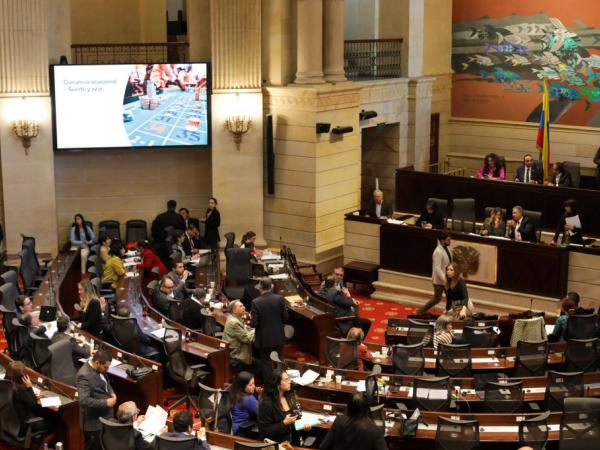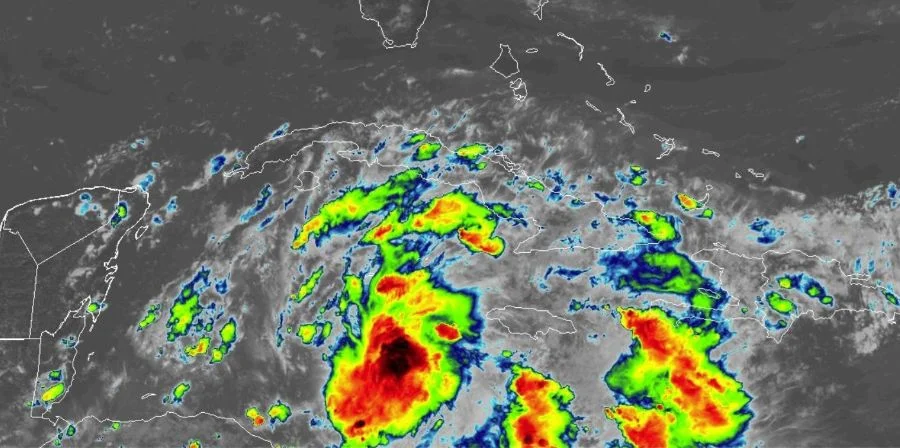The financing or tax reform bill is a chapter of the General Budget of the Nation that has not yet been reviewed in the Congress of the Republic, although it is already noted that it will begin its process with great suspicion on the part of the analysis centers and experts in the field, who They maintain that the stick is not for spoons and that, as a remedy, it could be harder than the disease.
Aspects such as the fact that the actual collection is just under 50% of the total $12 billion that it seeks to obtain, or that it depends on advancing the fiscal rule to generate relief in the pressure on the State’s coffers; as well as the impact that it would have on issues such as the price of fuels and the gas rate, are part of the concerns that experts have regarding this rule.
More information: The impact that the Petro government’s reforms would have on the economy, according to Fenalco
In this sense, a recent report from the Economic Research team at Banco de Bogotá He reviewed all the proposals in the Financing Bill and warned that despite the good intentions, if viewed as a whole, this reform presents “a risk to the sustainability of public finances” and that there are other paths that are worth reviewing more closely.
One of the first points that draws attention in the analysis has to do with the spirit of the norm, since they argue that “given that the changes presented in the country’s tax structure generate, in net, income of $6.5 billion in 2025 but are diluted to be $0.6 billion in 2030, the project is more similar to a proposal to increase the debt limit.”
Financing bill.
Private file
The latter, based on their approach to modify the fiscal rule through a “green concept,” which from his perspective would put the country’s finances in jeopardy, especially in these days when income needs to be generated and tax collection is at its lowest levels in the last 20 years.
“Given the changes that would be made to the Fiscal Rule, which could give the Government spending space of up to $11.2 billion in 2025. Faced with the green component of the RF proposed in the reform, a study The IMF highlights that, without a relevant adjustment in spending other than environmental issues, the sustainability of public finances could be compromisedespecially in emerging economies (such as Colombia),” said Banco de Bogotá.
You may be interested: Tax collection fell sharply in August and puts pressure on the State’s coffers
Compensated changes
Regarding the effects that the reduction in income for legal persons or companies may generate, the analysis maintains that a scenario of compensated changes would be generated, in which what would no longer be perceived on this side would ultimately enter with the increase of the same concept for natural persons; while highlighting that it generates competitiveness compared to other countries, mainly in the OECD, by becoming more attractive to investors.
“The Government hopes to reduce the tax rate for companies by betting on economic recovery. However, this tax reduction has nuances. In particular, the reduction in the rate will depend on the size and economic sector of the company. Small companies will see a decrease in their income tax rate from 35% to 27% starting in 2025; medium-sized companies from 35% to 30% gradually between today and 2029; and large companies, from 35% today to 33% in 2026,” they said.
This is why Banco de Bogotá emphasizes that “although these changes translate in a lower income payment, the reality is that the elimination of the Simple Regime in the midst of the increase in the minimum tax rate from 15% to 20% limits the potential reduction in the tax burdenespecially small and informal businesses,” and highlights that important sectors for the economy would be left out.

Bank of Bogota
Bank of Bogota
Strengthen the Dian
Another of the sections that was reviewed by this economic research team is that of the Dian and the new tools that are intended to be generated to strengthen its management, through tools such as the incentive to report cases of evasion, the expansion of its staff and the modernization of its operating teams.
In this sense, they highlighted that “adjustments in the retention rate stand out.”n at source; new conditions for deductions of costs and expenses compared to the previous declaration and payment of withholding tax”, which, beyond seeming optimistic, from their calculations could become an ally to solve the State’s cash flow problems.
Other news: The strategy with which actions will be coordinated in favor of energy security
This is because “the adjustment in the parameter for withholding tax could help solve the Government’s cash flow problems, since personal income tax payments would go from being heavily concentrated between August and October to being distributed more evenly throughout the year,” they argued.
Tax risk
In addition to concerns with the green tax rule, the research team The Banco de Bogotá maintains that with the current financing bill, past errors would be repeated, such as what happened with arbitration litigation, when the collection capacity of the Dian was overestimated, in addition to reviving investors’ fears of possible changes to the rules of the game.

Colombian pesos
iStock
“At a time when RF compliance has been at risk, leading investors to estimate a higher country risk and discount a reduction in Colombia’s rating, The Financing Law exacerbates fears about the implementation of the necessary fiscal adjustmentgiven rising public spending and weakened revenues,” they said.
This is why they closed by warning that “if the Law is approved as it is, only until 2028 would a fiscal deficit comparable to those observed before the pandemic be observed again” and that “the fiscal imbalance from 2025 to 2029 would be between 3.1% and 5.4% of GDP, when in 2018 and 2019 it was 3.1% and 2.5% of GDP, respectively”, which would result in the country remaining in debt for longer.


















